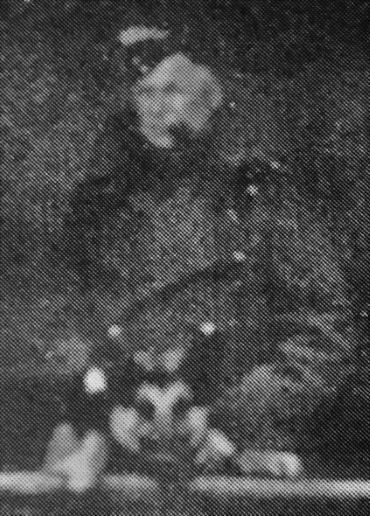John Collings had been born in Antwerp Belgium. He lived there with his family both before and after the First World War. His daughter was born there in 1925. This gave him a fluency in languages that would prove very useful in his military career.
After the war he initially lived at Holt near Wimborne in Dorset, before emigrating to Canada. There he bred and trained horses. He died in the Veteran's Hospital in Toronto aged seventy seven.
| Unit or location | Role | Posted from | until |
|---|---|---|---|
| Bowland, Area 10 | Intelligence Officer | 16 Aug 1940 | 01 Oct 1943 |
| Phantom: The GHQ Liaison Regiment | Phantom Officer | 16 Sep 1939 | 15 Aug 1940 |
| Phantom: The GHQ Liaison Regiment | Phantom Officer | 16 Sep 1939 | 15 Aug 1940 |
In the First World War he was commissioned on 1 May 1917 as a Second Lieutenant in the Cavalry.
On 5 Feb 1919 he was granted the temporary rank of Captain in 18th Lancers while a Company Commander at a School of Instruction
On 27 Apr 1919 he received a probationary commission in the Indian Army.
His initial commission during the Second World War was as a Lieutenant Quartermaster in the Royal Armoured Corps.
He commanded the Intelligence Section No.3 Military and Air Mission (Phantom) in the campaign in France 1940. He was evacuated from Dunkirk and wounded. He was awarded the Military Cross for services in France.
16 Aug 1940- circa Nov 43 Intelligence Officer Auxiliary Units Special Duties East Anglia
13 Jan 1944 posted to CBTA Civil Affairs Staff Centre on completion of course.
Mentioned in Despatches for services 1944/45 North West Europe,
5 Aug 1947 Relinquished his commission and awarded Honorary Rank of Lieutenant Colonel
By May 1950 he was serving as the Kreis Resident Officer, a civilian appointment with the British High Commission in Germany, frequently held by former Control Commission Germany Officers. In February 1949 West Germany had again become a Federal state. However what had been the Occupation Army still exerted considerable influence over German affairs and the Resident Officers, appointed to a Kreis (district) were responsible for ensuring good relationships and effective support and that the military were making requests of the population, rather than issuing orders. Lt Col Collings also had the unusual role of handing over the German border community of Elten to the Netherlands as part of the Bakker-Schut reparations plan. This was reportedly handled very smoothly by the Dutch with limited German antipathy to something out of their control. Collings reportedly said “This is about the best occupation I have ever seen and I saw some." The small town would be bought back by Germany in 1964, but still retains a Dutch minority population.
Collings was an accomplished horse trainer and breeder and was part of the Army Polo Team as well as playing for Antwerp teams. His Alsatian dog, Mark, came into his ownership by unorthodox means. Jill Holman, Special Duties courier from Aylsham, looked after him for a few weeks while John was on a course.
GHQ Liaison Regiment: A Nominal Roll with Short Biographies, Asher Pirt;
https://www.thegazette.co.uk/London/issue/34714/supplement/7105/data.pdf
https://www.thegazette.co.uk/London/issue/38068/supplement/4281/data.pdf
https://digital.nls.uk/british-military-lists/archive/88897739
With Britain in Mortal Danger, J Warwicker
Auxiliary units Part II Orders 14 Jan 1944
Register of Foreigners Antwerp
Kreis Resident Officer ( Dutch Language)
